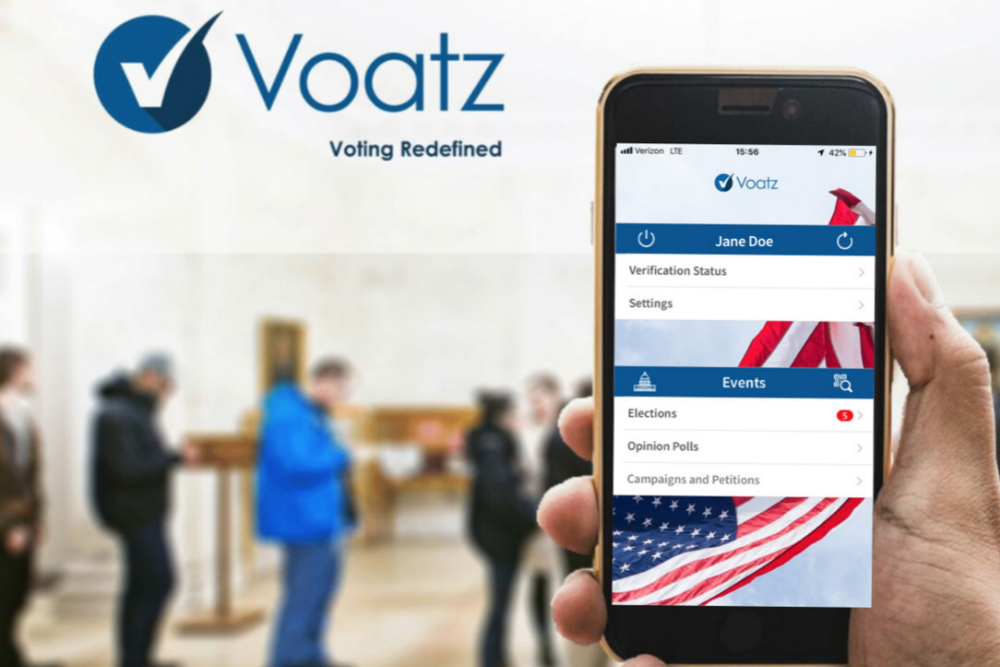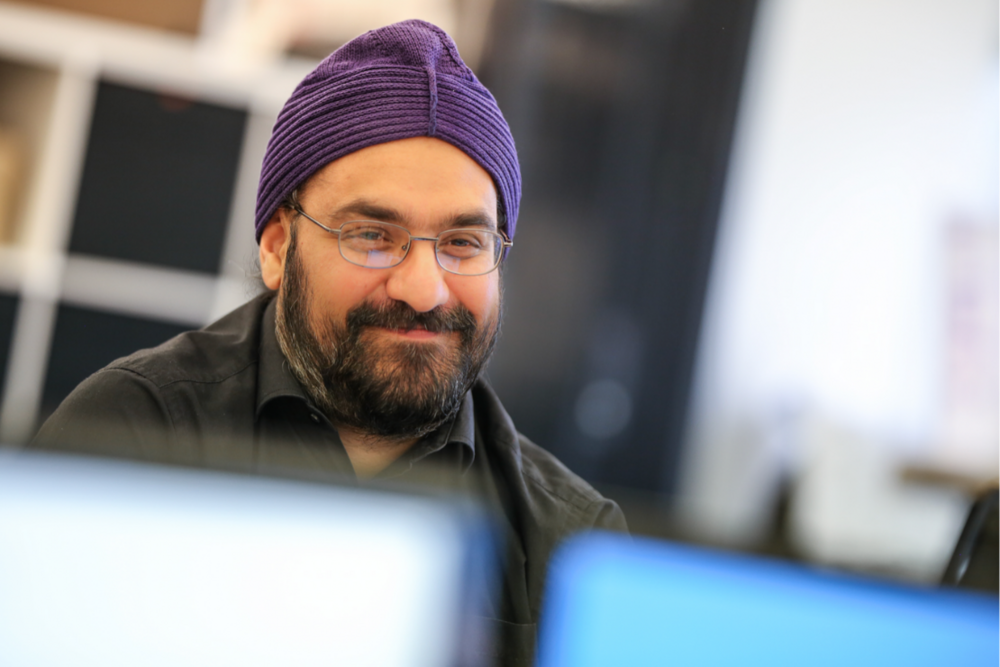Voatz: Blockchain Brings the Vote To You
Mar 01, 2020

3-min read
Voatz | Techstars Boston 2017
Founded by Nimit Sawhney and his brother, Voatz is on a mission to make voting safer and more accessible by incorporating blockchain, biometrics and encryption to let people vote securely from a smartphone or tablet. The company completed the Techstars Boston accelerator program in 2017, and Techstars participated in their $7 million Series A round in 2019.
The ability to vote in person should not determine whether someone votes at all. This is the guiding principle behind Voatz — an elections platform that makes it possible to vote from a mobile device by leveraging the security built into smartphones and the immutability of the blockchain.
More Than 50 Secure Elections
Today, the 2017 Techstars Boston alum has run more than 50 elections with cities, universities, towns, nonprofits, and both major state political parties for convention voting —- and it shows no sign of slowing.
The tech behind the platform is simple yet powerful. On the Voatz app, authentication is a three-step process that uses fingerprints, facial recognition, and document verification to determine that voters are who they say they are. Meanwhile, blockchain ensures that, once submitted, votes are verified and immutably stored on multiple, geographically-diverse verifying servers.
Despite lingering concerns surrounding tech in elections — something not helped by the 2020 Iowa Caucuses — Voatz cofounder Nimit Sawhney makes clear that the company has done its homework. In ten governmental pilot elections conducted to date, all have been conducted safely and securely with no reported issues.

Nimit Sawhney, Founder of Voatz
The Boston company made U.S election history by empowering deployed military and overseas citizens to vote in West Virginia in 2018 — America’s first mobile votes. In 2019, Voatz expanded its pilots to Denver, Utah, Oregon, and Washington, all of which held citizen’s public-facing audits hosted by the National Cybersecurity Center. These audits confirmed that votes were recorded and tabulated accurately, alleviating a major concern around mobile voting.
“Educating people about the tech and the benefits it provides is a constant challenge, especially in the elections industry where there is so much mistrust,” Nimit says. “That part of our work is really, really hard — because it’s not exactly a logical thing, it’s emotional. You have to appeal to logic and demonstrate there is a better way.”
Techstars Accelerator: A Turning Point For Voatz
As pilot tests expand, Nimit says the Techstars accelerator represented a turning point for the company.
“Before we got selected for the program, we were having a very hard time,” Nimit says.
“We just had a handful of paying customers, and it didn’t really feel like we could survive for much longer,” Nimit says. “In our first year and a half, given the nature and regulation of our space, it was hard to get investors. So we would get cheap flights to hackathons literally every month to try and get some cash. We could have given up then—- but we got lucky with a few things, and then we got really lucky with the Techstars selection.”
Nimit describes the accelerator as equal parts intense and educational, fundamentally changing how the company went on to fundraise, strategise, pitch, and communicate.
Voatz remains a close member of the Techstars family. The startup received additional investment from Techstars after the accelerator, and Techstars Senior VP and Partner Cody Simms has joined the startup’s board.
In June 2019, the company received a vote of confidence from investors in the form of a $7 million Series A round. Techstars participated in the round along with Medici Ventures.
Nimit has a simple message for companies who feel like giving up: “The universe will always try to stop you, but you have to keep barreling along.”
